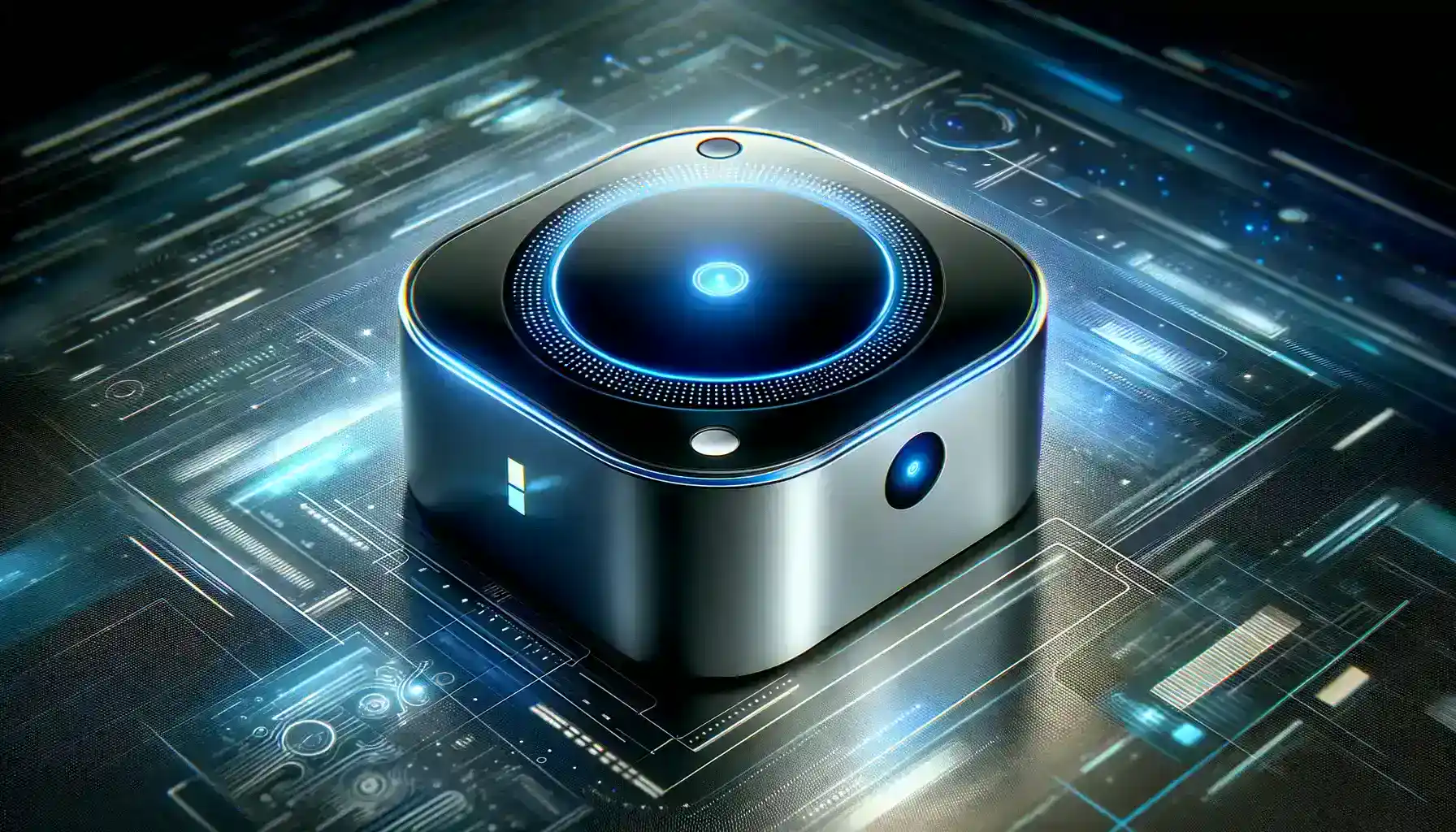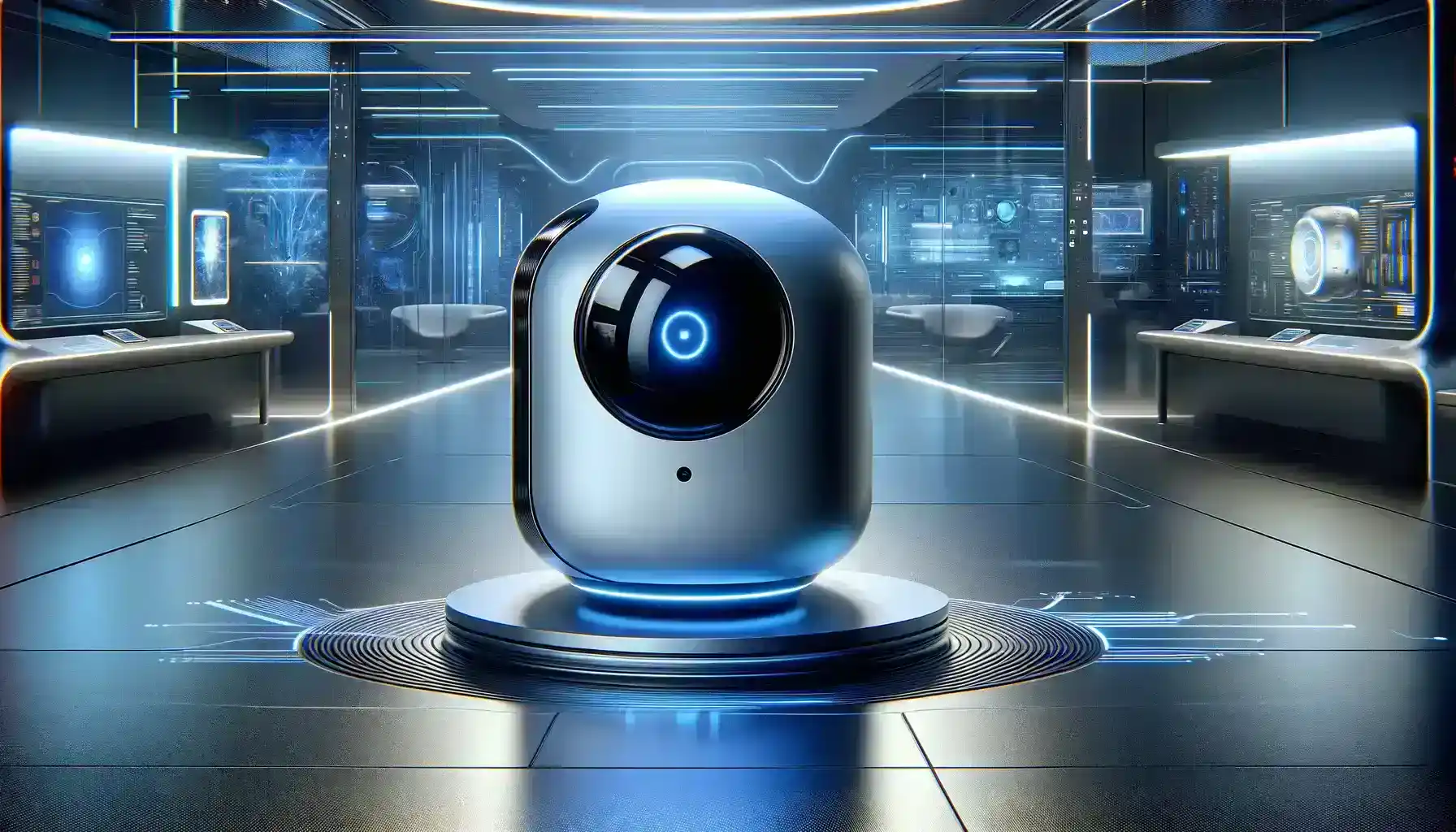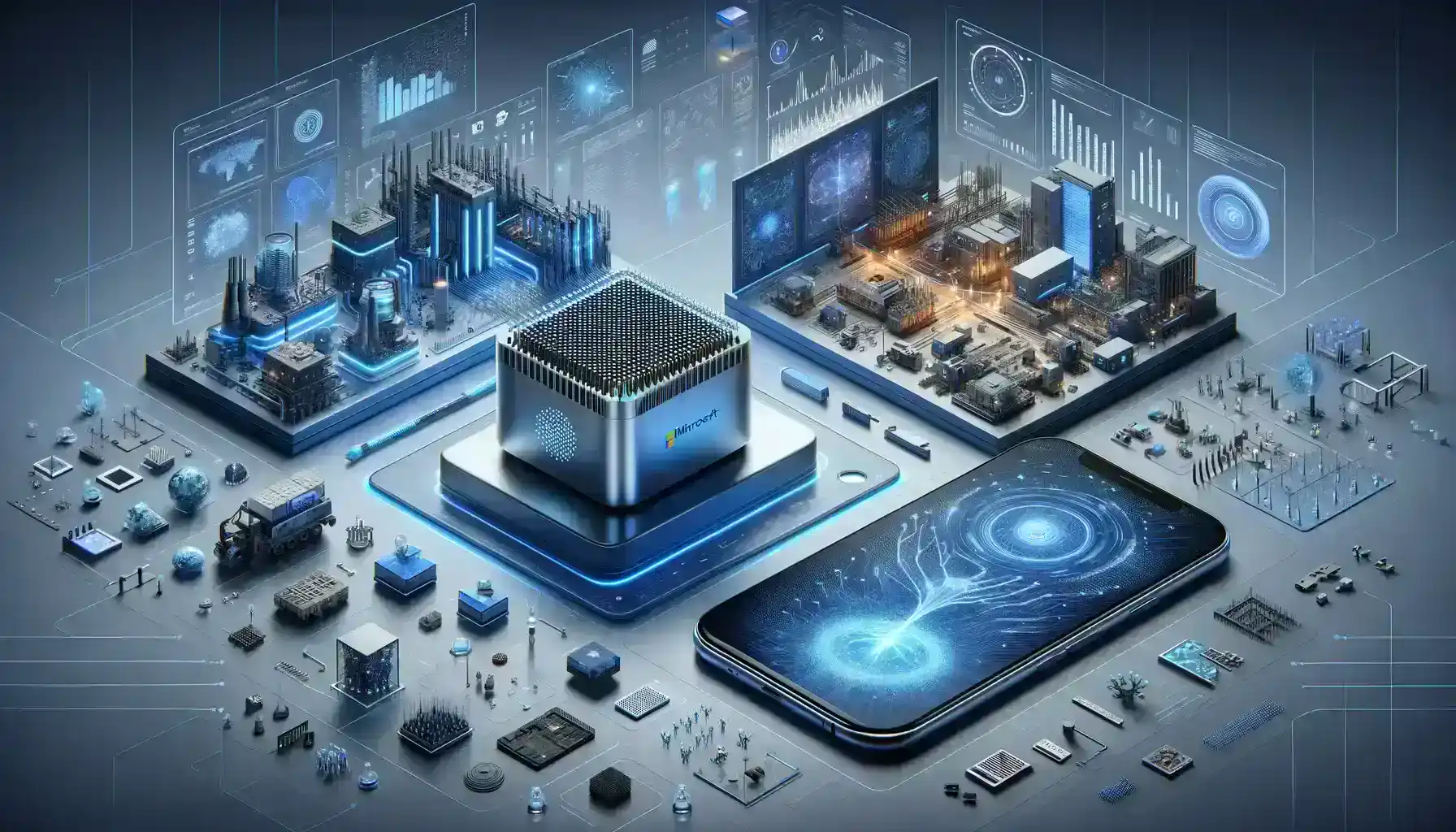Table of Contents
Artificial Intelligence (AI) has revolutionized the way we interact with technology, offering solutions that are increasingly intelligent, efficient, and integrated into our daily lives. Major tech companies like Microsoft have been at the forefront of this transformation, pushing the boundaries of what AI can achieve.
Their efforts have not only enhanced existing technologies but have also led to the creation of new paradigms in the digital world. A key trend in recent AI advancements is the development of compact AI solutions. These smaller, more efficient AI systems are crucial in a world where technology is becoming ever more ubiquitous and integrated into a range of devices, from smartphones to home appliances.
The compactness of these AI systems allows for greater versatility and accessibility, making advanced technology available to a wider audience and in a variety of contexts. In this dynamic landscape, Microsoft’s Phi-2 stands out as a groundbreaking development.
This compact AI marvel represents a new standard in the tech industry, offering a blend of high performance, efficiency, and flexibility that was previously unattainable. Phi-2’s innovative design and capabilities showcase Microsoft’s commitment to leading the AI revolution, further cementing its position as a key player in shaping the future of technology.
Microsoft’s Legacy in AI and Technology

Microsoft, a titan in the technology industry, has a storied history marked by groundbreaking innovations, especially in the realm of artificial intelligence (AI). Founded in 1975 by Bill Gates and Paul Allen, Microsoft revolutionized personal computing with its Windows operating system.
Over the decades, it expanded its reach into various tech sectors, consistently emphasizing innovation and user-centric design. In the field of AI, Microsoft has been a key player. One of its earliest forays into AI was the development of the Microsoft Bob in the 1990s, though it was ahead of its time and not widely adopted.
The real stride in AI came with the introduction of Cortana in 2014, a digital assistant that leveraged natural language processing and machine learning, showcasing Microsoft’s capabilities in creating AI that could interact seamlessly with users.
Further solidifying its role as an AI pioneer, Microsoft acquired LinkedIn in 2016, integrating AI to transform professional networking and job searching. Its Azure AI platform has been instrumental in democratizing AI, offering tools and services that enable businesses and developers to build AI-driven applications.
These milestones set the stage for the emergence of Microsoft’s Phi-2. Building on a rich legacy, Phi-2 is not just a continuation of Microsoft’s AI journey, but a leap forward, promising to redefine the standards in compact AI technology and its applications across various domains.
The Compact Revolution: Understanding Microsoft’s Phi-2 Design

The concept of compact AI refers to the development of artificial intelligence systems that are physically smaller, more energy-efficient, yet equally or more powerful than their larger counterparts. This trend toward miniaturization is critical in modern technology for several reasons.
First, it allows AI to be integrated into a wider range of devices, from smartphones to IoT devices, expanding its utility and accessibility. Second, compact AI systems are more energy-efficient, which is increasingly important in a world focused on sustainability and reducing the carbon footprint of technology.
Microsoft’s theoretical Phi-2 design epitomizes this trend. Envisioned as a marvel of miniaturization, Phi-2 could be built with advanced microprocessors and optimized algorithms that consume less power while delivering high computational power.
Its compactness suggests a broad array of applications: it could be embedded in mobile devices, enhancing on-the-go AI functionalities like real-time language translation or augmented reality. In industrial settings, Phi-2 could power smart sensors and automation systems without the need for bulky hardware.
Moreover, its small size and efficiency would make it ideal for deployment in remote or challenging environments, like space exploration or deep-sea research, where space and energy resources are limited. Thus, Phi-2 could represent a significant leap in making powerful AI ubiquitous and versatile in various sectors.
Advanced AI Capabilities of Phi-2
The anticipated functionalities of Microsoft’s Phi-2 suggest it could be a leap forward in AI technology. Expected to embody advanced machine learning algorithms, it may offer unparalleled data processing and predictive analytics capabilities, far surpassing current standards.
Its potential for enhanced natural language processing could revolutionize how machines understand and interact with human language, making digital assistants and customer service bots more intuitive and effective.
Compared to existing AI technologies, Phi-2’s edge might lie in its ability to integrate deep learning more seamlessly, enabling more sophisticated decision-making and pattern recognition. For instance, while current AI systems are adept at specific tasks, Phi-2 could excel in handling diverse, multi-faceted problems, providing more holistic and nuanced solutions.
Furthermore, Microsoft’s Phi-2 is expected to bring improvements in real-time processing speed and accuracy, a critical factor in applications like autonomous vehicles and real-time translation services. This improvement could mark a significant shift from the current batch-processing models, leading to more dynamic and responsive AI systems.
In summary, Microsoft’s Phi-2’s advanced AI functionalities could set new benchmarks in versatility, efficiency, and effectiveness, highlighting a significant evolution from the capabilities of existing AI technologies.
Energy Efficiency and Sustainability
The evolution of AI technologies brings to the forefront the critical issue of energy efficiency. Traditional AI systems often require substantial computational power, leading to high energy consumption. However, the emergence of more energy-efficient AI technologies signals a shift towards sustainability in the tech world.
Microsoft’s Phi-2 exemplifies this new era of sustainable technology. Designed with energy efficiency in mind, Microsoft’s Phi-2 potentially represents a significant leap in reducing the environmental impact of AI systems.
Its compact design likely incorporates advanced hardware and software optimizations that minimize power usage without compromising on performance. This approach not only reduces the operational costs associated with AI deployments but also aligns with the global push for greener, more sustainable technology solutions.
By integrating these energy-efficient strategies, Microsoft’s Phi-2 could set a new standard for future AI developments, encouraging a balance between technological advancement and environmental responsibility. Its influence could extend beyond the realm of AI, inspiring a broader movement towards energy-conscious designs in various tech sectors.
Versatility and Scalability: Phi-2’s Market Impact

The potential versatility and scalability of Microsoft’s Phi-2 are central to its impact across various sectors. In personal computing, Phi-2 could revolutionize user experience by enabling more intuitive and responsive interfaces, driven by sophisticated AI algorithms.
Its compact nature suggests it could be integrated into a wide range of devices, from smartphones to home assistants, enhancing daily digital interactions with seamless, intelligent functionality. In the industrial realm, Phi-2’s scalability becomes crucial. Its advanced AI capabilities, when scaled up, could significantly optimize manufacturing processes, predictive maintenance, and supply chain management.
Furthermore, the field of autonomous vehicles and smart city infrastructure could greatly benefit from Phi-2’s efficient processing power and compact design. Its ability to swiftly process vast amounts of data in real-time is vital for the safety and efficiency of these technologies.
Integration with Microsoft’s Ecosystem
The integration of Microsoft’s Phi-2 into the broader Microsoft ecosystem represents a significant advancement, offering substantial benefits for both users and developers. For users, the seamless integration of Phi-2 with familiar platforms like Windows, Office, and Azure could enhance user experience, offering more intuitive and responsive AI-driven features.
This integration might also enable more personalized and efficient interactions with Microsoft products, from smarter virtual assistants to more sophisticated data analysis tools, enriching both personal and professional computing experiences.
For developers, Phi-2’s integration could open up new frontiers in application development. It may provide advanced AI capabilities readily accessible through Microsoft’s development platforms, such as Visual Studio and Azure AI services.
This accessibility could significantly reduce the complexity and time required to incorporate sophisticated AI functionalities into applications, fostering innovation and creativity in software development. Moreover, with Microsoft’s Phi-2 extensive support and resource ecosystem, developers could find it easier to learn, experiment, and deploy AI-based solutions, potentially leading to a broader range of high-quality, AI-enhanced applications for end-users.
Thus, Phi-2’s integration stands to significantly enrich the Microsoft ecosystem, benefiting a wide range of stakeholders.
Conclusion
In conclusion, Microsoft’s Phi-2 marks a significant leap in the field of artificial intelligence, redefining the standards of technological innovation. With its compact structure housing 2.7 billion parameters, Phi-2 challenges the conventional belief that larger models are inherently superior, demonstrating that efficiency and advanced capabilities can coexist in a smaller package.
This breakthrough not only signifies a major advancement in AI’s cognitive and reasoning abilities but also sets a new benchmark for future developments in the tech industry. Phi-2’s unique blend of size, power, and safety in AI interaction presents a model that is not only more sustainable but also more aligned with ethical AI practices.
Its introduction is a pivotal moment, signaling a shift towards creating smarter, more efficient AI systems that can integrate seamlessly into various sectors, paving the way for innovations that were once considered beyond reach.
In essence, Microsoft’s Phi-2 stands as a testament to the potential of compact AI models in driving the next wave of technological evolution.